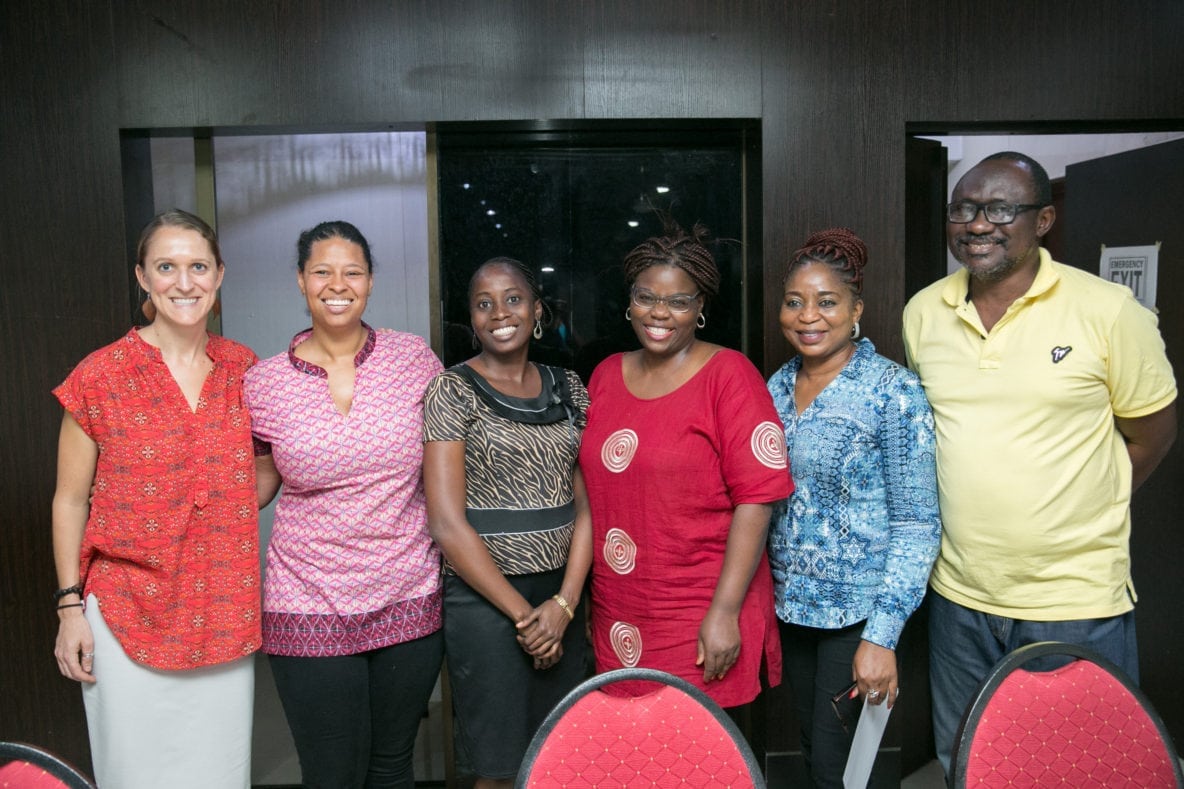By Kaitlin Chandler
In Nigeria, 20 leaders representing civil society organizations, communities, and companies across Lagos and Abuja, are tackling some of the toughest challenges women and girls face in their country. Often grappling with resource constraints and obstacles like corruption and ingrained gender stereotypes, they are doing the hard work because they have a vision for a more just and equitable Nigeria.
Launched with the support of Cummins, the Leadership Accelerator opened in Nigeria with an intensive first week. Between discussing complex issues and diving deep on advocacy, gender, and leadership, I witnessed leaders experience several “aha” moments to push their work forward.
Throughout the week the leaders developed strategies to work with policymakers to improve girls’ access to STEM education in school, to change the way the government and institutions support victims of gender-based violence, and to ultimately improve the lives of women and girls. One leader is determined to build the capacity of Nigerian girls to influence policymakers to create a law that protects adolescent girls’ rights. Another is incorporating alliance building into their efforts to educate local decision-makers on free universal education.
In these and other areas, successful policy changes could affect the lives of many millions, as Nigeria is home to the largest population in Africa and among the youngest and fasting growing in the world. As of 2017, 44% of the Nigerian population is under the age of 15 (UN 2017). The illiteracy rate among girls is 42% (compared to 24% among boys), and 39% of girls are married by the age of 18. Only 18% of sexually active women report the use of contraception. Broadly, 54% of Nigeria’s population lives below the poverty line (UNICEF 2012).
With the support of Rise Up, this new cohort of Nigerian leaders is developing sustainable strategies to improve these statistics.
I learned so much from this curious, passionate, and bright group, and I couldn’t be more inspired by how they have grown as leaders and collaborated as advocates and allies this past week.
One Accelerator participant reflected, “I’ve had an intense seven days of learning. I thoroughly enjoyed my experience with like-minded people, working towards the same goal. I’m leaving full of new knowledge and I’m looking forward to a long relationship with the Rise Up team.”
So what is next for these new Rise Up leaders? Rise Up will competitively fund the strongest advocacy proposals developed by these leaders to advance education, equity, opportunity, and social justice for girls and women in Nigeria.
We will support them with technical assistance on their project’s implementation, provide network support, and offer professional development and leadership strengthening opportunities throughout their journey in rising up with and for girls and women.
But it doesn’t end there, these forward-thinking leaders will become lasting members of our network and we’re grateful to be a part of theirs. Rise Up will amplify their voices, often times continue our technical and financial support to scale their work, and they will leverage their local partners and network to help us build a stronger movement with and for women and girls to achieve large-scale change.
This committed group of leaders and the over 300 applicants who applied to join the first Nigerian cohort are exactly why Rise Up exists. Together, we are successful when we unleash the power of local visionary leaders, invest in their solutions, strengthen their advocacy capacity, and amplify their work.


